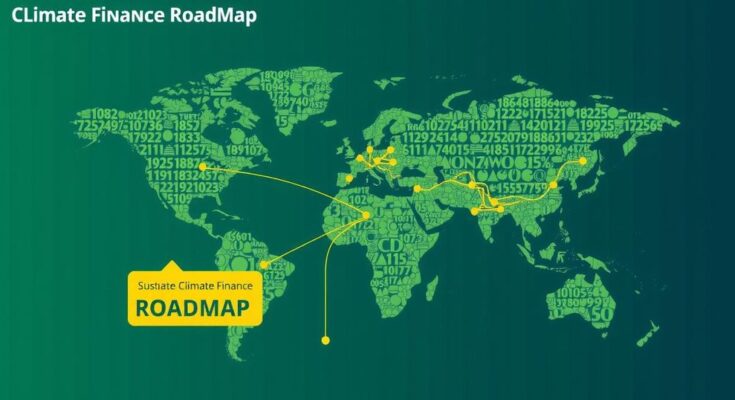COP29 concluded with unresolved issues on climate finance, highlighting significant discrepancies between pledges and real financial needs. Developed countries have committed to a mere $300 billion by 2035 against an annual requirement of $1.3 trillion, aggravating distrust from Emerging Market and Developing Economies (EMDEs). Some positive steps occurred, such as establishing a global carbon market, but doubts about effective implementation remain. Emphasis on innovative financing and equitable distribution is essential in the lead-up to COP30.
The 29th Conference of Parties (COP29) concluded on November 24, highlighting a lack of progress on critical climate finance discussions. The developed nations have again delayed effective support for developing countries, a situation underscored by a stark disparity between pledges and actual funding needs. Although some agreements were reached, including the establishment of a global carbon market, there remains substantial skepticism within Emerging Market and Developing Economies (EMDEs) regarding the sincerity and feasibility of commitments made by wealthier nations.
Historically, developed countries pledged $100 billion annually in 2009 to assist developing nations, a promise that has gone largely unfulfilled over the past fifteen years. The subsequent increase in target to $300 billion by 2035 is not nearly adequate when faced with the estimated $1.3 trillion needed annually. Moreover, while the Baku declaration mentions $1.3 trillion, it leaves the means of achieving this figure ambiguous, effectively stating that developed countries bear no concrete responsibility.
This raises serious ethical concerns, as developing nations contribute the least to global emissions yet suffer the most from climate impacts. The principle of Common But Differentiated Responsibility (CBDR), which was established to ensure that those historically responsible contribute the most, appears to have been overlooked in the negotiations.
Despite the discouraging atmosphere at COP29, there were glimmers of hope, particularly with the establishment of a global carbon market aimed at facilitating collaboration for emission reductions. Additionally, several nations, including the UK and Brazil, committed to ambitious Nationally Determined Contributions (NDCs) but face skepticism about their ability to follow through without sufficient funding for developing countries.
Looking forward to COP30 in Brazil, it is imperative for negotiators to devise mechanisms for channeling funds effectively to EMDEs. New initiatives, such as global solidarity levies and financial taxes on wealthier sectors, alongside reforming eligibility criteria for climate finance, are suggested as ways to enhance funding flows. Furthermore, it is crucial to streamline bureaucratic processes that delay financial support to vulnerable nations.
Without substantial commitment and actions from developed nations to meet their pledges, the gap between the necessary and available finance will continue to widen, jeopardizing efforts to mitigate climate change impacts, especially within developing nations. Time is of essence; the global community must collaborate to advance climate action and ensure funding reaches those who need it most.
The ongoing challenges surrounding climate finance are rooted in historical commitments made by developed nations to support developing countries in addressing climate change. These nations initially pledged to mobilize $100 billion annually at the 2009 COP15 conference. However, the progress since then has been insufficient, leading to a current estimated need of $1.3 trillion each year for developing nations to adequately respond to climate challenges. The divide between the Global North and South has persisted, illustrating deep-seated issues of trust and accountability in global climate negotiations. Amidst this backdrop, COP29 represents not just another round of discussions but a critical juncture for establishing more effective climate financing frameworks and achieving equitable solutions.
The outcome of COP29 signals a pressing need for renewed commitment and action regarding climate finance from developed nations. The significant gap between financial pledges and actual needs is alarming, especially considering the urgency of climate impacts disproportionately affecting developing countries. Moving forward, transparent mechanisms for climate finance distribution and innovative funding strategies must be prioritized to ensure that support reaches those in greatest need, ultimately fostering global collaboration in the fight against climate change.
Original Source: www.outlookbusiness.com




